We are constantly being bombarded with information on television, on radio, on social media and even while conversing. However, we should not always believe what we’re told. There are in particular, a lot of assumptions surrounding the topic of sleep. Most of these preconceptions have become so widespread that they are now rarely questioned. The following are some of the most popular notions about sleep along with the scientific proof to either validate or invalidate these beliefs.

FALSE
Although there are specific age recommendations for total sleep time, sleep needs vary greatly from one individual to another. One person may feel rested after five to six hours of sleep while another may require more than the average amount of sleep. This variation is due to a multitude of factors including genetics, overall health, and age. It is therefore important to get the right amount of sleep according to your personal needs rather than trying to achieve a set number of hours of sleep. For more information, read “Sleep, a personal and evolving natural need“.
FALSE
Caffeine fights sleep by blocking the action of adenosine, a sleep-promoting neurotransmitter produced in the brain during wakefulness. A certain amount of adenosine is needed to induce deep sleep. Coffee can therefore impact the quality of sleep, even when you are able to fall asleep after a cup of coffee and even if you feel that you have slept well. The extent of caffeine’s effects on sleep can differ from person to person depending on age, sensitivity to caffeine, time of day, amount of coffee consumed and genetics!


FALSE
Apart from a few exceptional cases (people who suffer from specific brain lesions), everyone dreams every night. However, not everyone remembers dreaming. In fact, about 20-25% of sleep time is dedicated to REM sleep, which is the stage of sleep during which dreams are most vivid. However, it is still unknown if the entire duration of REM sleep is taken up by dreams. It is also possible to dream during slow wave sleep, but those dreams are less vivid.
FALSE
Although alcohol can make you fall asleep faster and have a more consolidated sleep at the beginning of the night, it does not necessarily equate to better sleep. In fact, alcohol is generally associated with more disturbed sleep at the end of the night and with early morning awakenings. Alcohol is also associated with increased snoring and an increased number of apnea episodes in those with sleep apnea. It is also associated with various irregularities in sleep stages, including an increase in slow wave sleep at the start of the night and a decrease in total REM sleep. REM sleep is particularly important for memory and emotion regulation, while slow wave sleep is important for physical recovery and memory – hence the importance of having normal proportions of each of these sleep stages. To learn more about sleep and alcohol, visit “Alcohol and Sleep during the pandemic”.


FALSE
Unfortunately, it is not possible to recover lost sleep, which is why it is important to get an adequate amount of sleep each night. Daytime naps can facilitate daytime functioning after a difficult night and can have all sorts of benefits when done properly. However, napping can lead to some sleep disturbances including a decrease in deep slow wave sleep and an increase in the time necessary to fall asleep the following night. See “The Art and Science of Napping” to properly master the art of napping.
TRUE
In fact, it is easier to remember a dream right after you wake up. Induced awakenings are used in sleep laboratory studies to facilitate dream collection. To learn more about dreams, visit “The Why and the How of Dreams“.


FALSE
Although there is no consensus in the scientific community on the main function of dreams, they seem to play an essential role in many aspects of our lives. For example, dreaming seems to be important for emotion regulation, stress management and even memory consolidation.
FALSE
Although we can condition ourselves to wake up earlier after only a few hours of sleep, this does not change our individual need for sleep. In general, an adequate amount of sleep is seven to nine hours for adults. A sleep debt is accumulated whenever you sleep less than your body needs. Cutting hours of sleep is not only counterproductive in the long run but will also have many repercussions on your physical and psychological health. Instead, listen to your own sleep needs, because every hour of sleep is time well spent for your health! See “Why sleep?” for more information.


FALSE
Brief awakenings during the night are very common and most people wake up several times a night even though it may be difficult to remember. In fact, it is quite normal to wake up during some of the lighter stages of sleep when the threshold for wakefulness is at its lowest. However, it is important to pay attention to the duration, frequency, and nature of your awakenings as well as your level of daytime functioning.
FALSE
There is no direct relationship between the time of wake and the level of productivity. To maximize your own productivity and perform at your best at work or school, it is important to respect your own unique biological clock. For example, early risers tend to be more productive in the morning while late sleepers tend to work better in the evening. The important thing is to take advantage of the time when you are most productive. So, the future can belong to early risers, late sleepers, and everyone else in between!

For more scientifically validated information on sleep, check out our various articles on the Sleep on it website!
